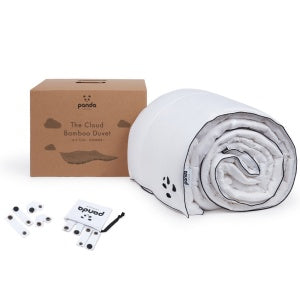Key Takeaways
|
A good night’s sleep is key to feeling healthy and enjoying a better quality of life. Many factors can impact how well (or not!) you sleep at night. Your diet is one of those, and as we all strive to be the best version of ourselves, it’s definitely worth thinking about how our eating habits can affect bedtime behaviours.
How can diet affect your sleep?
There is a relationship between our diet, our body’s digestive system, and our sleep. And it’s not just whether or not we do sleep – there’s also an impact on the quality of sleep we get, and whether it’s restorative or not.
But why is this? It’s all linked to how your digestive system processes the food you eat. The digestive system is in charge of breaking down your food, allowing nutrients to be absorbed into the bloodstream. In turn, these nutrients have an impact on your sleep habits. Certain nutrients, like calcium and magnesium, are linked to better bedtimes and more restorative rest.
And there are, of course, certain nutrients or food components that have the opposite effect – keeping you awake at night. We’ll explore this further throughout this article, but it’s essential to understand that what we put into our bodies is linked to how we function, including how we sleep.

What is the best diet to help you sleep?
Diets that are low in fibre while being high in both saturated fat and sugar might not stop you from drifting off, but that slumber won’t actually be restorative; this means that your body isn’t repairing itself during the night, leading to feeling sluggish when you wake up. If you don’t get enough carbohydrates or protein, you might find you struggle to fall asleep. This article from the BBC references research which suggests that adults who don’t get enough sleep are more likely to have a lower intake of calcium, magnesium and vitamin D.
Timing Matters: When to Eat for Better Sleep
So, with that in mind, how can you eat your way to better sleep? Firstly, you should eat at roughly the same time each evening – this helps to keep your circadian rhythm on track, as your body takes cues from your routine in order to know when it’s time to start settling down for sleep. And remember, eating late or within two hours of bedtime can lead to restless sleep as your digestive system will still be working hard as you’re trying to drift off!
Nutrients That Promote Restful Sleep
In terms of what you should be eating, a high fibre diet is a great way to improve your sleep. Fruits, veggies, nuts and grains are great for this. Aim to add foods into your diet that are rich in the B vitamins: fish, meat, eggs and dairy. They tend to contain tryptophan, which is an amino acid that converts to melatonin – the so-called ‘sleepy hormone’. You should also try to consume food which is high in magnesium and potassium, as these are natural muscle relaxants that can help you nod off easier. Foods like spinach, brown rice and black beans are magnesium-rich, while you can increase your potassium intake with bananas, avocados and sweet potatoes.
For certain conditions, there may be specific diets to follow. For example, the best diet for sleep apnea is high in fibre, lean proteins and magnesium, but avoids high-fat dairy which increases mucus production as well as alcohol, which can generally worsen sleep apnea symptoms.
Supplements and Sleep Aids: What to Consider
A balanced diet for better sleep is key, and you don’t have to deny yourself a little treat from time to time. Just make sure you eat a range of nutritious foods, and stick to regular meal times. If you find yourself struggling to incorporate these nutrients into your diet naturally, consider supplements as part of a balanced routine – melatonin is a good one to take at night, before winding down and slipping into bed with a good book and a comfortable bamboo pillow. For many, bamboo pillows are real eco-friendly sleep essentials that can help with bedtime comfort for better sleep.
Which diets can be bad for sleep?
There are plenty of so-called ‘fad diets’ out there, aimed at making you slimmer or more muscly and so on, but these can actually have a really negative effect on how we sleep.
Keto
The keto diet involves eating a very low amount of carbs, with a higher proportion of fats. Healthline says that “this reduction in carbs puts your body into a metabolic state called ketosis. When this happens, your body becomes incredibly efficient at burning fat for energy. It also turns fat into ketones in the liver, which can supply energy for the brain.”
With the keto diet, trouble sleeping can be fairly common. A lot of people on the keto diet experience something called ‘keto insomnia’, where they struggle to fall asleep or find themselves waking up frequently during the night. The Sleep Foundation says that “the immediate shift to a low-carb diet leads to a reduction in sleep-regulating chemicals like melatonin and adenosine. The body typically undergoes an adjustment period, and sleep patterns tend to normalise as it adapts to the new metabolic state.”
Carnivore
The carnivore diet is typically a very high protein diet – essentially you cut out carbs completely (as well as vegetables, pulses, grains and so on) and aim to only eat meat, fish and other animal products like eggs. But can a high-protein diet cause sleep problems? This diet absolutely can impact your sleep; while meat is high in B vitamins and tryptophan which is conducive to sleep, it is also high in saturated fat which can cause poor quality, disrupted sleep.
Which foods should you avoid when trying to get a good night’s sleep?
If you find that you’ve not been sleeping as well as you could be, then start by adjusting your diet to see if that helps. There are quite a few foods you should aim to avoid when trying to improve your sleeping habits:
- High-caffeine food and drinks, particularly from afternoon onwards – caffeine blocks a chemical called adenosine, which promotes drowsiness and helps us drift off.
- Alcohol – while it might make you sleepy, it actually leads to poor quality slumber and a lack of REM sleep.
- Foods high in saturated fat – these fats can cause a low quality sleep and cause you to wake up more frequently.
- Foods with a high sugar count – sugar disrupts the balance of hormones and neurotransmitters, leading to sleep disturbances and a lack of slow wave, deep sleep.
- Acidic or spicy foods – these can lead to heartburn, which in turn causes discomfort and can keep you awake at night. Spicy foods can also cause you to overheat; temperature-regulating bedding can help, like cooling bamboo sheets, but overall it’s best to avoid eating spicy food too often.
A sleep expert’s guide to eating better to get a good night’s sleep – Q&A with Dr Seeta Shah
We asked one of our sleep experts, Dr Seeta Shah, her take on diet and sleep.
What adjustments would you recommend we make to our diets to ensure we get a good night’s sleep?
One of the most effective dietary changes for better sleep is to focus on foods that support steady blood sugar levels throughout the day and especially in the evening. This means prioritising whole, unprocessed foods like vegetables, legumes, whole grains, nuts, and seeds. These foods are rich in complex carbohydrates, magnesium, and B vitamins, all of which support the production of melatonin and serotonin – key hormones involved in regulating sleep.
It also helps to reduce intake of stimulants like caffeine, especially after midday, and to be mindful of heavy or high-fat meals close to bedtime, which can disrupt digestion and sleep quality. Incorporating foods rich in tryptophan – such as oats, pumpkin seeds, and leafy greens – can naturally support better rest.
Is there any exciting research you’ve seen in relation to sleep and diet? If so, what were the key takeaways?
Yes, there’s growing evidence showing that diets rich in fibre, antioxidants, and anti-inflammatory compounds are linked to deeper, more restorative sleep. A recent study published in Nutrients found that individuals who ate more plant-forward diets with minimal processed foods tended to fall asleep faster and have better sleep quality overall. The research highlighted the role of certain nutrients – like magnesium, potassium, and polyphenols – in calming the nervous system and promoting melatonin synthesis.
Another interesting area of study is the connection between the gut microbiome and sleep. Diets high in fibre and fermented plant foods seem to improve gut health, which in turn affects sleep-regulating neurotransmitters like GABA and serotonin.
Are there any superfoods that can help us get a good night’s sleep?
Yes, there are several nutrient-dense foods that can naturally support better sleep:
- Cherries (especially tart cherries) are one of the few natural sources of melatonin, the hormone that helps regulate sleep-wake cycles. Studies suggest they can help improve both sleep quality and duration.
- Pumpkin seeds are rich in magnesium and tryptophan, both important for promoting relaxation and melatonin production.
- Oats provide complex carbohydrates and naturally contain melatonin. They also help transport tryptophan into the brain, supporting serotonin production.
- Dark leafy greens like spinach and kale are packed with magnesium and calcium, which play key roles in muscle relaxation and regulating sleep cycles.
- Bananas are a good source of potassium, magnesium, and vitamin B6 – all of which contribute to nervous system health and help convert tryptophan into sleep-supporting neurotransmitters.
- Cocoa (especially raw or minimally processed) contains magnesium, iron, and flavonoids. It also supports serotonin production, which can have a calming effect. A warm cup of unsweetened cocoa made with plant milk in the evening can be a soothing bedtime ritual – just make sure it’s low in caffeine and free from added sugars.
- Incorporating these foods into a balanced evening routine can support more restful, high-quality sleep without relying on supplements or medication.
Diet, sleep and how we can improve both
Can diet affect sleep? Absolutely. Better diet, it seems, leads to better sleep – improving your bedtime habits starts with what you eat and drink. Everything we consume impacts the way our body works, how we feel, how much energy we have and of course, how well we sleep. By incorporating more nutritious foods, eating at a regular time each evening and limiting certain food groups, we can start to sleep better than ever! Remember, the best diet for sleep is one you’ll stick to; make small changes over time to avoid feeling overwhelmed!
| Upgrade Your Sleep with Cooling Bamboo Bedding |
FAQ
1. How does fibre intake influence sleep quality?
High-fibre diets promote restorative sleep by slowing digestion, maintaining stable blood sugar, and supplying nutrients like magnesium for muscle relaxation.
2. Which nutrients help boost melatonin and improve sleep?
Tryptophan-rich foods (oats, eggs), magnesium sources (spinach, nuts), and vitamin B6 help your body produce melatonin and feel more relaxed.
3. Can certain diets worsen sleep problems?
Yes. Low-carb diets like keto can reduce sleep-regulating chemicals, causing "keto insomnia," while high-protein carnivore diets may disrupt sleep due to high saturated fats.
4. What foods should I avoid for better sleep?
Steer clear of late-afternoon caffeine, high-sugar treats, heavy fatty meals, spicy dishes, and alcohol—all of which impair sleep quality.

![[MattressTopper] Panda London Memory Foam Bamboo Mattress Topper package box](http://pandalondon.com/cdn/shop/files/Bamboo_Mattress_Topper_Package_Box.webp?v=1742301823&width=1500)
![[MattressTopper] Panda London Memory Foam Bamboo Mattress Topper on the floor](http://pandalondon.com/cdn/shop/products/Panda-Memory-Foam-Bamboo-Mattress-Topper-Yoga-e1624045454555.jpg?v=1758795458&width=1000)
![[MattressTopper] Bamboo Mattress Topper Lifestyle Image with Memory Foam Pillows Product Page](http://pandalondon.com/cdn/shop/files/Bamboo_Mattress_Topper_Lifestyle_Image_with_Memory_Foam_Pillows_Product_Page.webp?v=1758795458&width=800)
![[MattressTopper] Bamboo Mattress Topper Lifestyle Image with Bamboo Pillows In the Garden room Product Page](http://pandalondon.com/cdn/shop/files/Bamboo_Mattress_Topper_Lifestyle_Image_with_Bamboo_Pillows_In_the_Garden_room_Product_Page.webp?v=1758795458&width=800)
![[MattressTopper] Panda London Memory Foam Bamboo Mattress Topper side](http://pandalondon.com/cdn/shop/files/Mattress_Topper_Isolated_-_resized.jpg?v=1758795458&width=800)
![[HybridMattressPro] Hybrid_Bamboo_Mattress_Pro_Product_Image_2026](http://pandalondon.com/cdn/shop/files/Hybrid_Bamboo_Mattress_Pro_Product_Image_2026.webp?v=1764944771&width=1000)
![[HybridMattressPro] Breathable Hybrid Bamboo Mattress](http://pandalondon.com/cdn/shop/products/Breathable-Hybrid-Bamboo-Mattress.jpg?v=1764944771&width=1920)
![[HybridMattressPro] Hybrid Bamboo Mattress Pro Cover Zip](http://pandalondon.com/cdn/shop/files/Hybrid_Bamboo_Mattress_Cover.jpg?v=1764944771&width=800)
![[HybridMattressPro] Panda Hybrid Bamboo Mattress Pro](http://pandalondon.com/cdn/shop/files/Hybrid_Bambo_Memory_Foam_Mattress_-_BioCell_Foam_x.jpg?v=1764944771&width=800)
![[HybridMattressPro] Couple on a Hybrid Bamboo Mattress Pro](http://pandalondon.com/cdn/shop/files/Hybrid_Bamboo_Mattress_Couple.jpg?v=1764944771&width=800)
![[CloudDuvet] Panda London The Cloud Bamboo Duvet Packaging](http://pandalondon.com/cdn/shop/products/Panda-London-The-Cloud-Bamboo-Duvet-Panda-Life-scaled_00a651ad-4ca3-4105-b520-12a94c1a4f71.jpg?v=1713363286&width=1920)
![[CloudDuvet] Panda London The Cloud Bamboo Duvet Rolled](http://pandalondon.com/cdn/shop/products/Duvet-Listing-Images03.jpg?v=1764079307&width=1000)
![[CloudDuvet] Panda London The Cloud Bamboo Duvet Girl Huggin a Duvet on the Bed](http://pandalondon.com/cdn/shop/files/Cloud_Bamboo_Duvet_-_Lady_Hugging_it_on_Bed_LifestyleImage.jpg?v=1764079307&width=1000)
![[CloudDuvet] Panda London The Cloud Bamboo Duvet Guy In the Air with Cloud Bamboo Duvet](http://pandalondon.com/cdn/shop/files/GuyonaHybridBambooMattresswithCloudDuvet.jpg?v=1764079307&width=2000)
![[CloudDuvet] Panda Cloud Duvet Winter on the bed lifestyle image](http://pandalondon.com/cdn/shop/files/Panda_Cloud_Duvet_Winter_on_the_Bed_Lifestyle-1_image.jpg?v=1764079307&width=1000)
![[BBWhite] White 100% Bamboo Bedding](http://pandalondon.com/cdn/shop/files/Pure_White_Full_Bed.webp?v=1719581797&width=1000)
![[BBWhite] White 100% Bamboo Bedding Texture](http://pandalondon.com/cdn/shop/files/100_Bamboo_Bedding_-_Pure_White_-_Close_Up_02.webp?v=1762879591&width=1000)
![[BBWhite] White 100% Bamboo Bedding Woman in bed sleeping](http://pandalondon.com/cdn/shop/files/100-Bamboo-Bedding-Set-Pure-White-BB.webp?v=1762879591&width=768)
![[BBWhite] White 100% Bamboo Bedding Woman Duvet cover buttons](http://pandalondon.com/cdn/shop/files/hand_and_buttons_1.webp?v=1762879591&width=1000)
![[BBWhite] White 100% Bamboo Bedding Woman in bed looking and smiling-](http://pandalondon.com/cdn/shop/files/SatonMadeBed-White100_BambooBedding-white_-_BB_SideShot1000x1000.webp?v=1762879591&width=980)
![[BBUrbanGrey] Urban Grey 100% Bamboo Bedding](http://pandalondon.com/cdn/shop/files/Made_Bed_-_Urban_Grey_-_Wide_Shot_2_1_1.webp?v=1762880019&width=1000)
![[BBUrbanGrey] Cloud Duvet Urban Grey 100% Bamboo Bedding Set](http://pandalondon.com/cdn/shop/files/Cloud_Duvet_-_Grey_-_Close_up_2.webp?v=1762880019&width=1000)
![[BBUrbanGrey] Urban Grey 100% Bamboo Bedding Set Woman sitting on the bed](http://pandalondon.com/cdn/shop/files/Sat_in_Bed_-_Grey_100__Bamboo_Bedding_-_Wide_Shot.webp?v=1762880019&width=1000)
![[BBUrbanGrey] Urban Grey 100% Bamboo Bedding Set Woman Duvet buttons Panda London](http://pandalondon.com/cdn/shop/files/hand_buttons_grey_bedding_1.webp?v=1762880019&width=1000)
![[BBUrbanGrey] Woman Sitting on the Bamboo Bedding with coffee](http://pandalondon.com/cdn/shop/files/SatonMadeBed-White100_BambooBedding-SideShot1000x1000.jpg?v=1762880019&width=1000)
![[BBNavyBlue] Deep Sea Navy Blue 100% Bamboo Bedding](http://pandalondon.com/cdn/shop/files/Made_Bed_-_Navy_-_Wide_Shot_3_copy.webp?v=1762879591&width=1000)
![[BBNavyBlue] Deep Sea Navy Blue 100% Bamboo Bedding Texture](http://pandalondon.com/cdn/shop/files/Cloud_Duvet_-_Navy_-_Close_up_2.webp?v=1762880019&width=1000)
![[BBNavyBlue] Deep Sea Navy Blue 100% Bamboo Bedding Woman Sitting on the bed](http://pandalondon.com/cdn/shop/files/Sat_Up_in_Bed_-_Navy_100__Bamboo_Bedding_-_Hands_on_Bed.webp?v=1762880019&width=1000)
![[BBNavyBlue] Deep Sea Navy Blue 100% Bamboo Bedding Duvet Cover Buttons](http://pandalondon.com/cdn/shop/files/Cloud_Duvet_Cover_Buttons_-_Deep_Sea_Navy.webp?v=1762880019&width=1000)
![[BBNavyBlue] Deep Sea Navy Blue 100% Bamboo Bedding Woman sitting on the bed looking away](http://pandalondon.com/cdn/shop/files/SatonMadeBed-White100_BambooBedding-SideShot1000x1000-001.webp?v=1762880019&width=980)
![[BBPink] Vintage Pink Blue 100% Bamboo Bedding](http://pandalondon.com/cdn/shop/files/Made_Bed_-_Pink_-_Wide_Shot_copy.webp?v=1762879591&width=1000)
![[BBPink] Vintage Pink Texture 100% Bamboo Bedding](http://pandalondon.com/cdn/shop/files/Cloud_Duvet_-_Pink_-_Close_up_2.webp?v=1762880019&width=1000)
![[BBPink] Vintage Pink Woman Sitting on the 100% Bamboo Bedding](http://pandalondon.com/cdn/shop/files/Sat_Up_in_Bed_-_Pink_-_Hands_on_Bed.webp?v=1762880019&width=1000)
![[BBPink] Vintage Pink Woman Sitting on the 100% Bamboo Bedding Duvet Cover](http://pandalondon.com/cdn/shop/files/Cloud_Duvet_Cover_Buttons_-_Vintage_Pink.webp?v=1762880019&width=1000)
![[BBPink] Vintage Pink Woman Sitting on the 100% Bamboo Bedding Woman looking far away](http://pandalondon.com/cdn/shop/files/SatonMadeBed-White100_BambooBedding-SideShot1000x1000-001_Vintage_Pink.webp?v=1762880019&width=980)
![[BBGrey] Light Grey 100% Bamboo Bedding](http://pandalondon.com/cdn/shop/files/Made_Bedding_in_Bedroom_-_Urban_Grey_-_Wide_Shot.webp?v=1762879591&width=1000)
![[BBGrey] Light Grey 100% Bamboo Bedding texture](http://pandalondon.com/cdn/shop/files/Texture17.webp?v=1762880019&width=1000)
![[BBGrey] Light Grey 100% Bamboo Bedding with Woman smiling](http://pandalondon.com/cdn/shop/files/Sat_Up_in_Bed_-_Grey_-_Hands_on_Bed.webp?v=1762880019&width=1000)
![[BBGrey] Light Grey 100% Bamboo Bedding with Duvet Cover buttons](http://pandalondon.com/cdn/shop/files/Cloud_Duvet_Cover_Buttons_-_Quiet_Grey.webp?v=1762880019&width=1000)
![[BBGrey] Light Grey 100% Bamboo Bedding with Woman smiling and sitting coffee](http://pandalondon.com/cdn/shop/files/SatonMadeBed-White100_BambooBedding-SideShot1000x1000-002-_Grey.webp?v=1762880019&width=980)
 Hybrid Bamboo Pillow
Hybrid Bamboo Pillow Memory Foam Bamboo Pillow
Memory Foam Bamboo Pillow Kids Memory Foam Bamboo Pillow
Kids Memory Foam Bamboo Pillow Baby Memory Foam Bamboo Pillow
Baby Memory Foam Bamboo Pillow Panda Cloud Duvet
Panda Cloud Duvet Bamboo Summer Duvet
Bamboo Summer Duvet Kids Cloud Duvet
Kids Cloud Duvet

![[MemoryFoamPillow] Panda London Bamboo Memory Foam Pillow](http://pandalondon.com/cdn/shop/files/03_Memory_Foam_Bamboo_Pillow__alt01.jpg?v=1770077322&width=800)
![[MemoryFoamPillow] Panda London Bamboo Memory Foam Pillow girl hugging the pillow](http://pandalondon.com/cdn/shop/files/02_Memory_Foam_Bamboo_Pillow__alt02.jpg?v=1770077322&width=800)
![[MemoryFoamPillow] Panda London Bamboo Memory Foam Pillow on a Panda Topper](http://pandalondon.com/cdn/shop/files/Memory-Foam-Bamboo-Pillow-on-Bed-Topper-and-Adjustable-Straps-Shown-Lifestyle-Square-768x768_png.webp?v=1770077322&width=768)
![[MemoryFoamPillow] Panda London Bamboo Memory Foam Pillow Girl Holding Pillow Lifestyle](http://pandalondon.com/cdn/shop/files/01_Memory_Foam_Bamboo_Pillow__alt04.jpg?v=1770077322&width=800)
